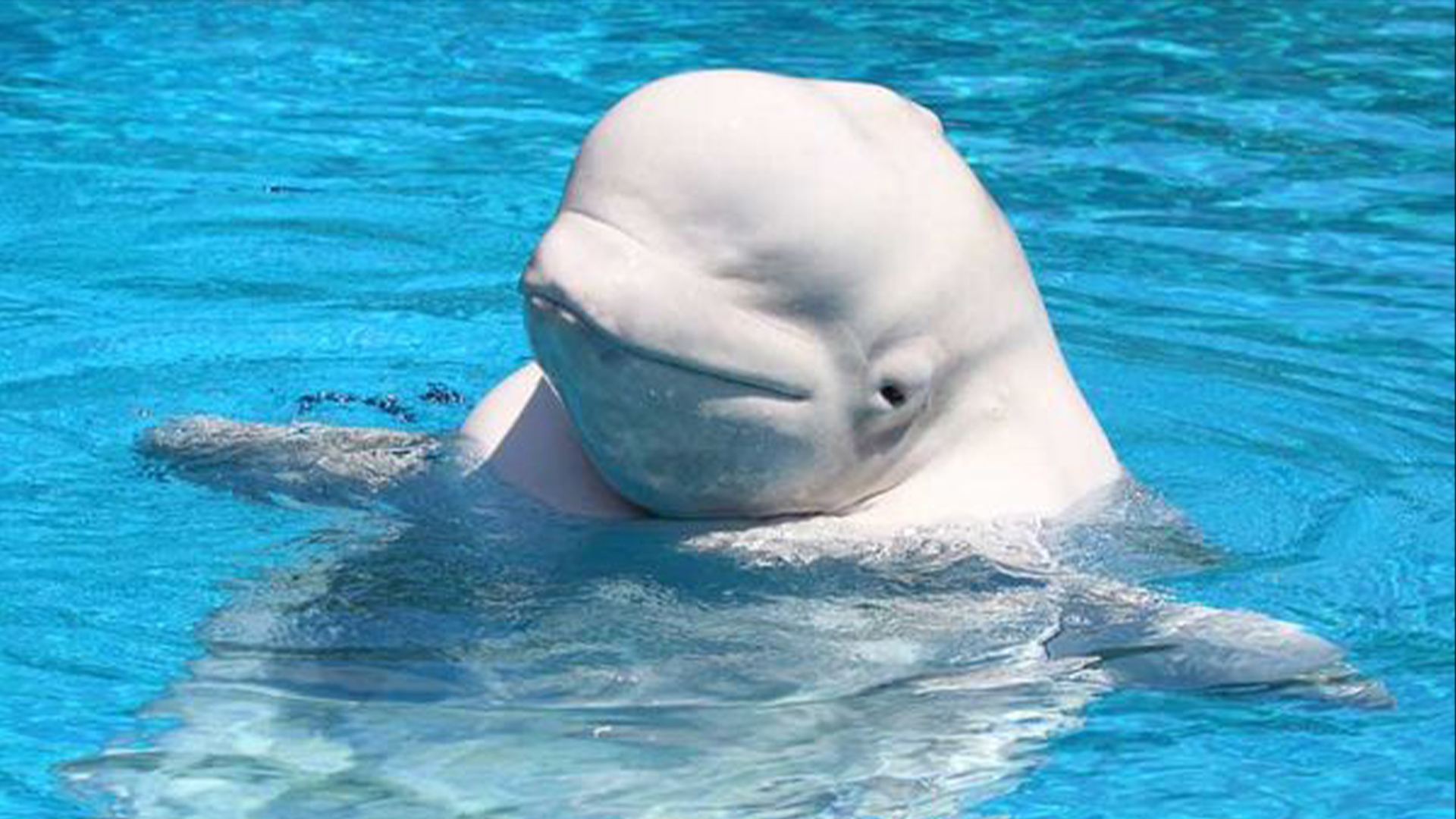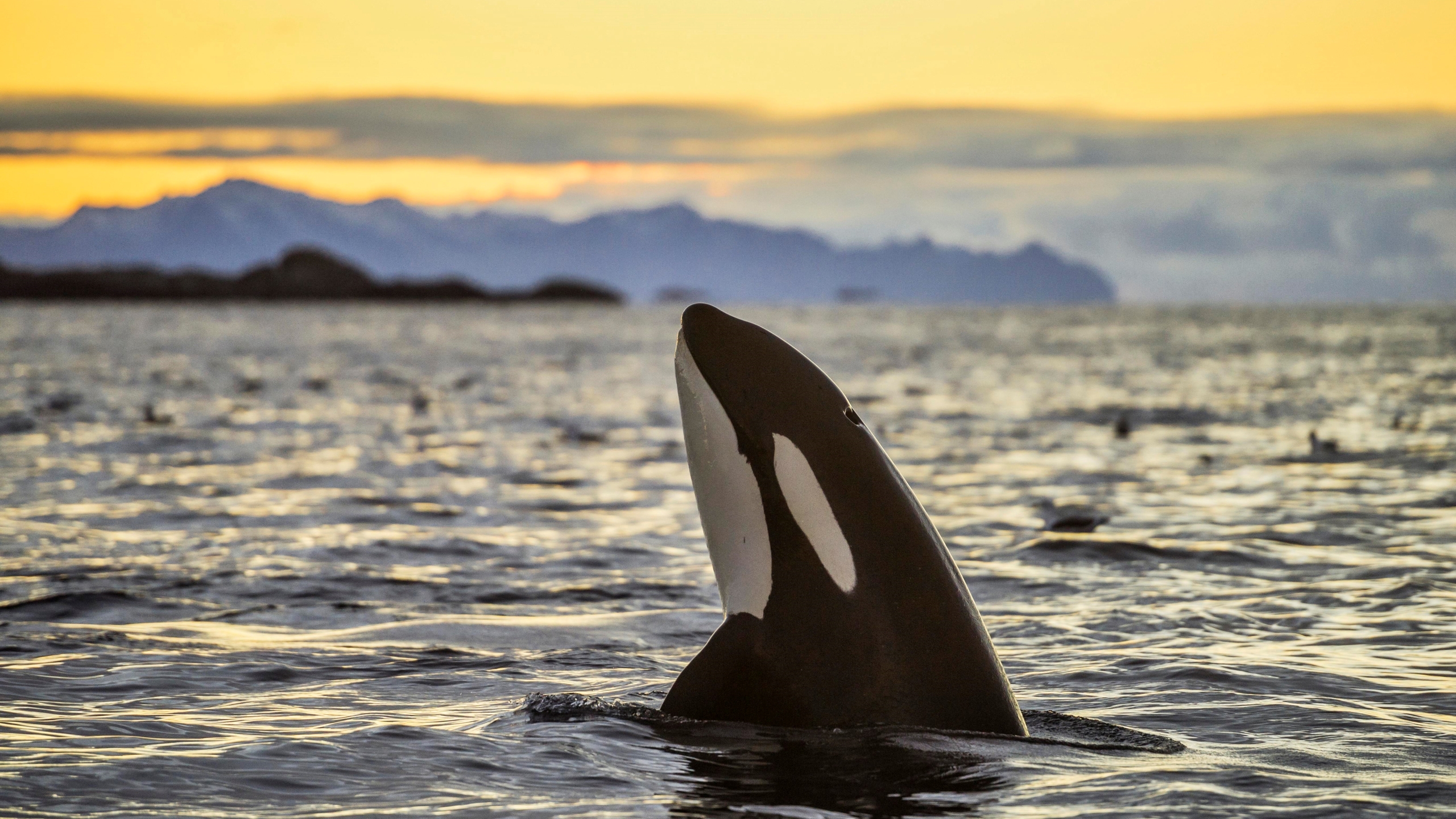Why some whales go through menopause
Toothed whales appear to have lengthened their lifespan without lengthening their reproductive life so they can help care for their grandchildren, a new study suggests.

Menopause evolves in toothed whales, like orcas and belugas, by lengthening their lives without changing how long they can reproduce. That allows older females to care for grandchildren without competing with their own daughters and sisters, a new study reveals.
The study, published today (March 13) in the journal Nature, is the first to examine menopause across several species.
"This is a piece of work that very much needed to be done," Megan Arnot, an evolutionary anthropologist at University College London, who was not involved in the study, told Live Science.
Living for an extended period after menopause is very rare in nature, with humans and five species of toothed whales as the only mammals known to possess this trait. Chimps in one wild population also go through menopause, though whether it is encoded genetically or just an accidental byproduct of an optimal environment is unclear.
At first glance, menopause seems to violate the rules of evolution. In order to have the most shot at passing on genes, it would make sense for an individual to breed until the end of its life.
So why did some species evolve menopause? According to the "grandmother hypothesis," females stop reproducing in order to help their children and grandchildren. This would indirectly help females pass on their genes by increasing the survival of their grandchildren.
Related: Chimps go through menopause. That could shed light on how it evolved in humans.
Get the world’s most fascinating discoveries delivered straight to your inbox.
As for how menopause evolves, there are multiple ideas. One, called the "live-long hypothesis" posits that animals simply live longer over time, while their reproductive lives stay the same. Toothed whales are an interesting test case because menopause evolved independently multiple times.
"What we wanted to do with this study was leverage this repeated evolution to ask some really general questions about how and why menopause evolves," lead author Sam Ellis, a psychologist at the University of Exeter in the U.K., told Live Science.
To test different theories on how and why menopause evolves, the researchers looked at data collected by generations of scientists to reconstruct the life history, the total lifespan and the reproductive lifespan of as many species of toothed whales as possible. Then, they compared the data from species which go through menopause and the species that don't.
Females from the five species of toothed whales that have evolved menopause have a lifespan about 40 years longer than expected for species of their size, while their reproductive lifespan is the same as that of comparable-size species. These findings support the "live-long" hypothesis.
The researchers also showed that females from species with menopause, thanks to their longer life, are able to spend much more time with their offspring — showing that there is an important role for grandmothers helping the next generations. Furthermore, by not reproducing anymore, older females don’t go into competition with their own family members.
Together, the findings suggest that “The extended post-reproductive lifespan has been the target of evolution — it is a strategy," Ellis said.
How this translates to humans is unclear. "We don’t know that it's definitely the same way it evolved in humans," Arnot said, "but it’s certainly a best guess at the moment."
However, it provides supporting evidence that there is a "common pathway by which menopause evolves," in both whales and humans, Ellis said.
But it's worth being cautious in interpreting the results, Rebecca Sear, a professor of population and health at the London School of Hygiene and Tropical Diseases, who was not involved in the study, wrote in an accompanying commentary for Nature News and Views, as "studying whale demography is not easy […] The data therefore contain biases and might involve small sample sizes”. That's because the data often looked at populations of stranded whales, which may not be representative of the age distribution of healthy populations.
"Research on menopause in humans has tended to focus mainly, although not exclusively, on searching for evidence of helpful grandmothering, and has found this in abundance," she wrote.
But that doesn't mean menopause actually evolved to provide this benefit.
"Contemporary grandmothers might help grandchildren either because menopause evolved to create helpful grandmothers, or because menopause means that older women have no choice but to invest in grandchildren rather than children."
 Live Science Plus
Live Science Plus






